One Thousand Ropes: An interview with director Tusi Tamasese
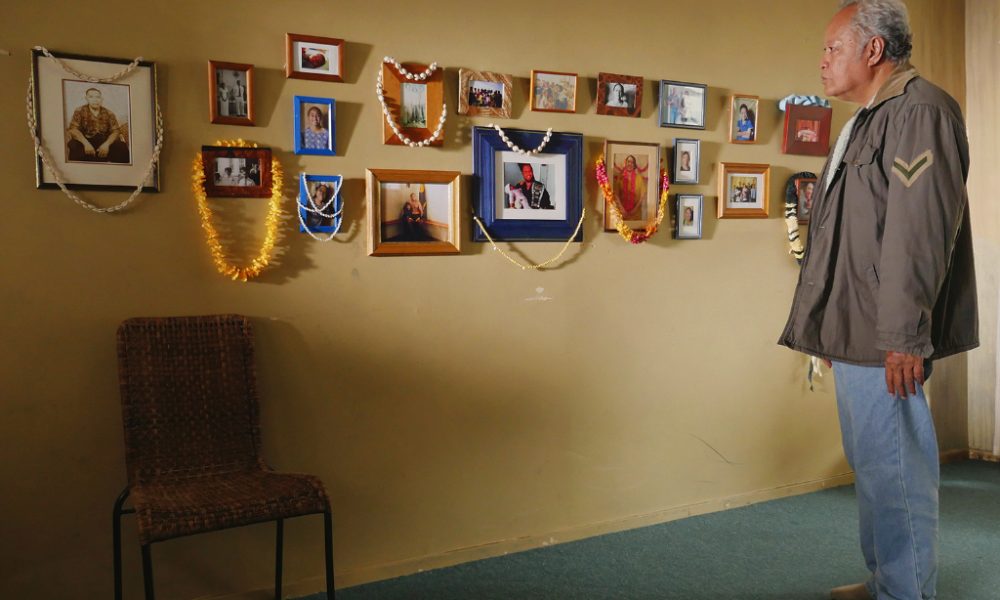
A gripping film about redemption and the relationships that can ultimately lead to a fresh start, One Thousand Ropes left audiences eager to question Samoan New Zealander director Tusi Tamasese after its world premiere at the 2017 Berlin International Film Festival. We caught up with the filmmaker the next day to discuss the complexities of Maea as an anti-hero, the uselessness of violence and the strength of women.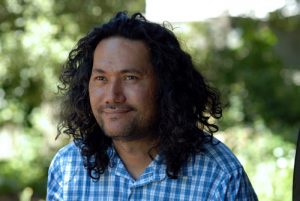
I enjoyed your film so much. It was visually haunting and quite emotional. Can you tell me about your writing process, and what motivated you to tell Maea’s story?
When I come up with ideas, they are sort of disconnected. With this one, I wanted to write a film about healing, about an anti-hero and make a horror film. I started off like that, trying to see where I can merge them into a story.
How long did it take you to finish the script?
Too long…about two years. I was also jumping to another script at the same time.
The world premiere was last night. How was the audience reaction?
It was good. A lot of them stayed behind expecting a Q&A, so that’s a good sign. Then when we told them that we must leave there was a lot of booing. So, they just came up to me and kept on asking questions.
That’s great. Can you tell us about the gruesome scene with Maea’s toe and Seipua’s tooth. There was a woman sitting in front of me who shielded her face in horror.
It’s based on superstition back home. A ghost can infect you in the form of a tooth, and the lead actor was saying they can control you through that. So the relationship between him and the ghost in the film is very hostile, fighting over power. She attacks him every now and then.
She was quite aggressive. What makes you keep wanting to deal with the themes of redemption, connections and new beginnings?
It’s one of the topics that keeps on drawing me because there are a lot of layers to the characters I create. They are put in these difficult situations, dealing with redemption and characters who are anti-heroes. For this film now, it focuses mainly on redemption and people being disconnected. How far disconnection can take them or who they become.
That kind of ties into the meaning of Maea’s name, a thousand ropes.
I picked the name because I like the meaning of how these people are held back by their violent pasts.
It seems rare to have real pregnant women cast in narrative films. How difficult was it casting and shooting them?
It was tricky. We actually used babies who were as young as one day. We had a fantastic casting person who went to the hospitals and started asking the women as they were going into labour. And the mothers were like, “Okay, wait until I give birth.” And yeah, we used pregnant women as well. There is one woman who [Maea] massages all the time who has a fake belly. We had midwives on the set who were protective, making sure the lead actor [did] not injure the baby.
The decision to have Ilisa and Molesi speak English while their elders speak Samoan was an interesting choice. What made you choose to do that?
I wanted a film that had the languages I’m using. Also, the generational difference was something that I wanted to touch on. I just wanted to hear two languages speaking together. I like when you speak English and someone else speaks something else, and you just converse in different languages.
It shows a degree of understanding even though they both speak the opposing languages they are most comfortable with.
Two different worlds but there is understanding.
Touching on the generational topic, the scenes between Debt and Molesi are volatile. Why does Debt always demand that he makes him tea?
Yeah, I was looking for something that represents servitude, how children look after their parents. I thought, tea…my mom would always say, “Go make me a cup of tea”. I wanted something that symbolises that in the film, that this is what the main character was looking for. He wanted a family, and I wanted to use that to show it.
Dorothy was so strong-willed. She criticised the men’s masculinity time and again. While she moves the heavy baking machine by herself, an intricate tattoo on her leg is exposed. What’s the significance of that reveal?
I come from a family of very strong women. The men are strong as well, but our family is controlled by women. I wanted to talk about that in the film. Giving her a tattoo, which is quite a painful process, symbolises the changes of becoming an adult and showing courage. I wanted a motherly figure who sort of controls this boyish, stupidity of men.
The violence that takes place is off screen, besides the ghost Seipua. What are your thoughts on depicting violence in film?
Because one of the themes is the aftermath of violence, everything is a consequence so I didn’t want to show the actions, just the result. I didn’t want to show the violence. I wanted to show violence, their brutality, through the way the characters talked and their behaviour. I tried to avoid showing it, so in that boxing scene you see the shadows on the wall. The uselessness of violence.
The film score was very eerie and beautiful, especially the beating of the pulse. How involved were you in the music process?
Well, I have a fantastic team, fantastic sound designer and film composer. I suggested a few things but they enhanced it and brought it to a different level.
The scene where Ilisa smashes Seipua’s grave and pours boiling water down the pipe was surprising. Is this a common belief in Samoan culture?
Yeah, it’s something that I grew up with. When I was young I had a neighbour friend who had that happen. They did that because there was a superstition. Their family did that because they were being haunted by a female relative, who was dead and buried for many years, who had been haunting them. It always fascinated me: water, the simplicity of just water. So I remembered that and wanted to bring it in. The simplicity that you don’t need weapons.
Do you have any daughters?
Yeah.
How did that impact the way you approached Maea’s relationship with Ilisa?
The more I dug into the family abuse and violence, I was fearful for my kids, my daughters. And that led me to start talking to them about not accepting punishment from anyone; no one has the right to inflict pain. Maybe only me if I’m going to spank them. But it brought that feeling of fear, fear that I don’t want my daughters to end up in a situation like Ilisa. That went into creating the relationship of the father and daughter as well. Try to talk to your kids more about stuff like this.
Do you have any new projects in development right now?
I have two that I’m working on. They are still works in progress. One of them is an animation about quintuplets set in old Tamil. The other one is about fa’afafine. This is transvestite in Samoan.
I’m excited for your next projects, they both sound so intriguing. Thank you.
Lindsay Bellinger
Photo: Mongrel International / Amelia Handscomb
Read our review of One Thousand Ropes here.
Read our interview with the cast here.
For further information about the 67th Berlin Film Festival visit here.
Read more reviews from the festival here.
Watch the trailer for One Thousand Ropes: An interview with director Tusi Tamasese here:













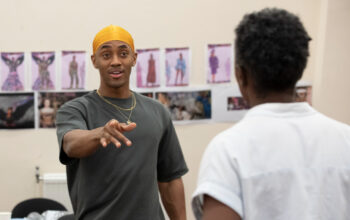


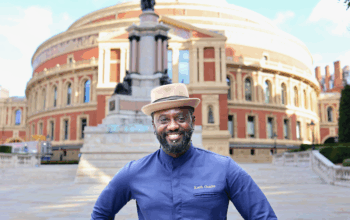




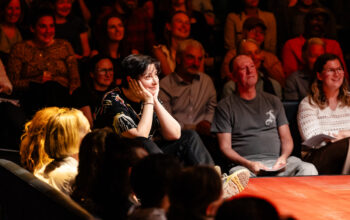

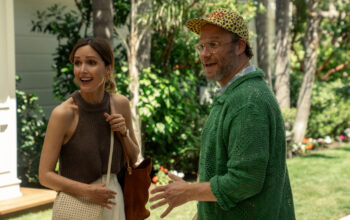


Facebook
Twitter
Instagram
YouTube
RSS